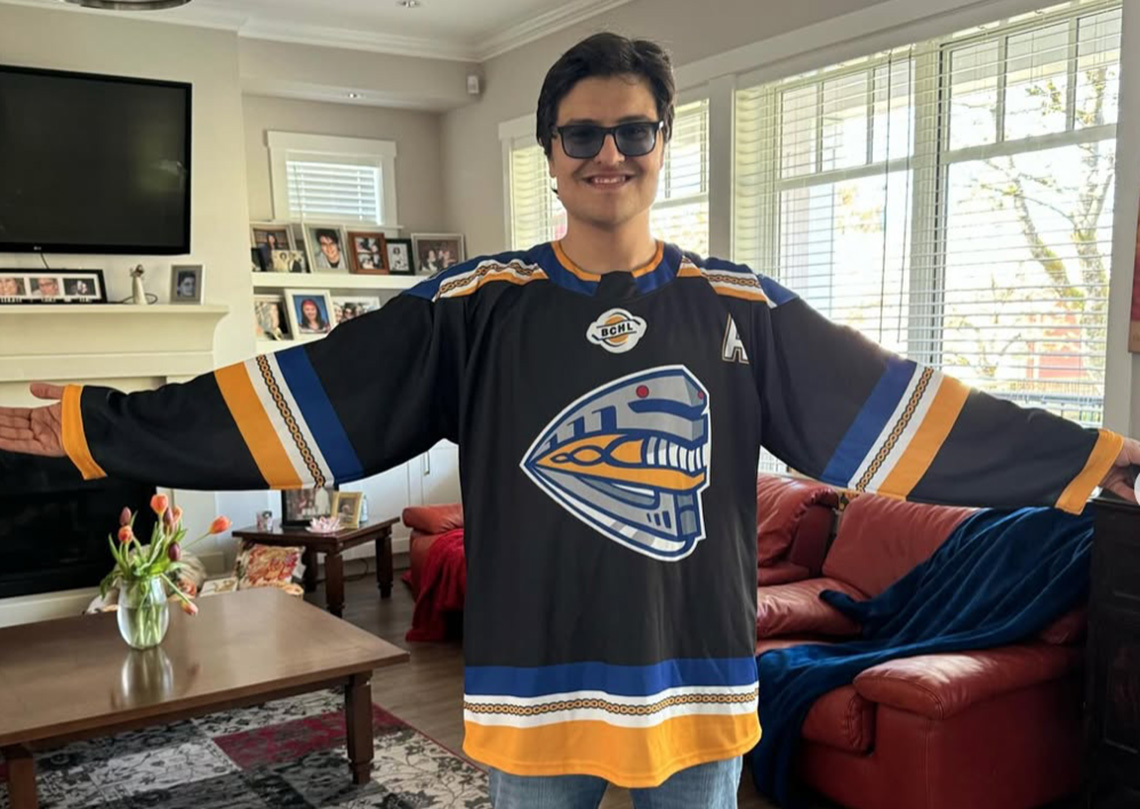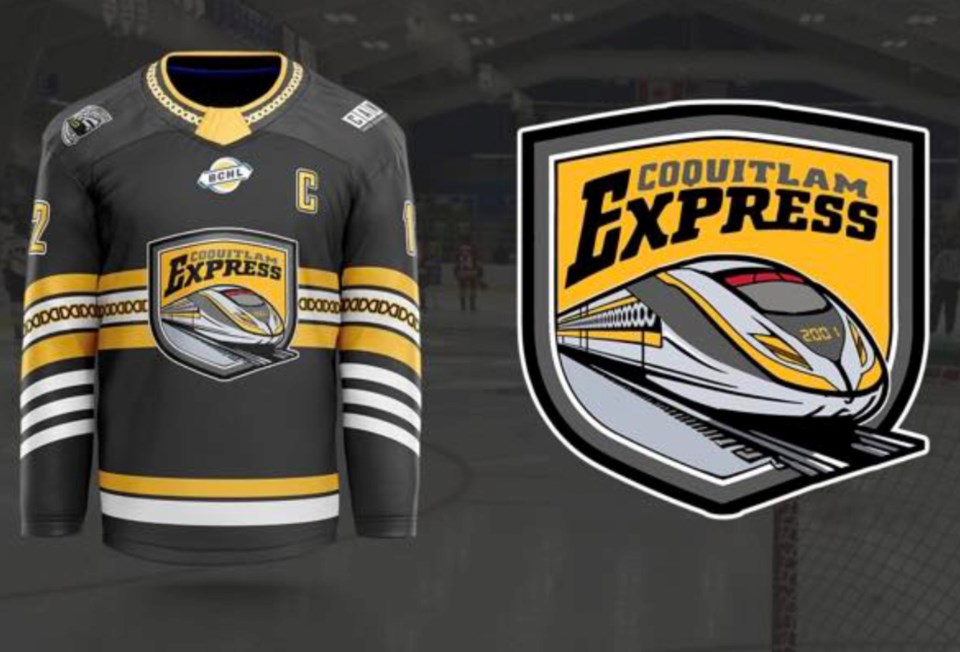Lucas Gates is hoping his design for a special Coquitlam Express jersey will raise eyebrows and spark a few questions.
Gates’ design, that features a sleek futuristic high-speed rail train adorning the team’s logo and striping that resembles track ties, will be worn by Express players for its fourth annual autism acceptance game on Jan. 12 at 3 p.m., when the Langley Rivermen visit the Poirier Sport and Leisure Complex.
It’s the second time Gates has worked with the team; he also designed the jersey for last’s year’s game. It was more of a retro take with a logo and striping that took its inspiration from the 2006 Express team that won the Canadian Junior A national championship while it was based in Burnaby.

This year’s iteration, said Gates, looks to the future.
“Now we’re at a point when we have to look ahead, turn the clock forward,” he said, adding that doesn’t just apply to the hockey team, but also autism acceptance in general.
Gates, 32, is on the autism spectrum himself. He said he was non-verbal until he was four years old and formally diagnosed when he was six.
Gates said he’s had a lifelong fascination with the aesthetics of sports design and his association with the Express came about when he was noodling around with a concept for an autism acceptance jersey he’d designed for the Vancouver Canucks that he’d posted on social media.
“It’s more of a hobby,” Gates said of his own artistic inclinations. “it might just be my own autistic tendencies.”
Express general manager Tali Campbell said having a special jersey for the game helps bring it a “bigger feeling.”
“It’s always a cool initiative for players and fans alike with a meaning behind it,” he said, adding an auction of last year’s jerseys helped raise $2,500 for the Canucks Autism Network (CAN). This year’s design will also be available by auction.
Gates said he hopes it raises curiosity.
“This highlights what it means to be on the spectrum,” he said. “When you accept someone with autism, it means you understand and can learn from them.”
When the Express first scheduled an autism acceptance game in 2022, it was still a unique initiative in the BC Hockey League. Since then other teams, like the Chilliwack Chiefs, Victoria Grizzlies and Surrey Eagles have come aboard through partnerships with CAN to raise money and create more inclusive environments for neurodiverse fans.
Campbell said the Express now works with CAN to provide special autism training for staff and volunteers, as well as all its players, including those on the organization’s four developmental teams.
“An inclusive environment for all has been our focus since we took over the club,” said Campbell, adding the Express provides a special quiet room with a view of the ice at all its home games where families can enjoy the experience from less stimulating environs.
The team also has special resource kits with sensory toys to help reduce anxiety, a visual walkthrough booklet to improve predictability and noise-cancelling headphones.
Sunday’s game will feature a scrimmage between CAN hockey teams during intermission, along with a ceremonial puck drop and anthem singer and PA announcer who are also neurodiverse.
Express split Island games
The Express opened the new year earning three of a possible four points from a pair of games on Vancouver Island.
Saturday, Andrew Ness stopped 37 of the 41 shots he faced in Coquitlam's net and Mason Kesselring scored a goal and added an assist to lead the Express to a 6-4 win over the Nanaimo Clippers at Frank Crane Arena.
Newcomer Carson McGinley, Joseph Odyniec, Mitch Kneidel, Nate Crema and Cooper Wilson also scored for Coquitlam, which led 3-2 at the end of the first period and 5-3 heading into the final frame.
Friday, Jan. 3, the Express lost to the Victoria Grizzlies, 6-5, in a shootout.
Crema, Leo Eperjesi, James Shannon, Kesserling and McGinley scored for the Express while Eric Young made 31 saves in Coquitlam's net.



